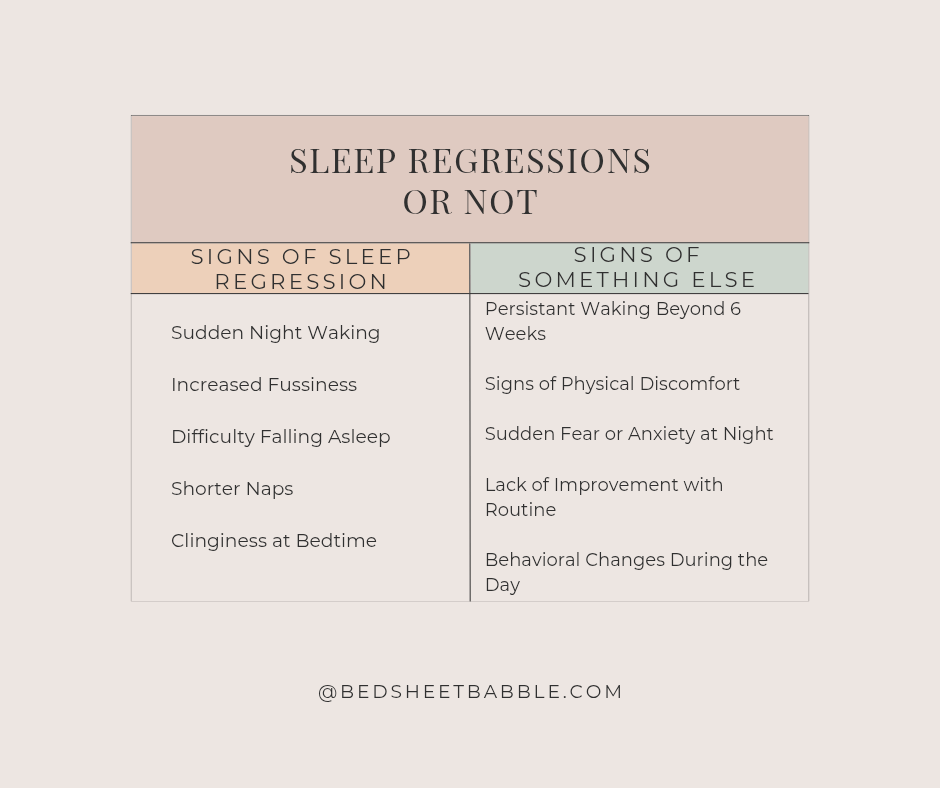How Long Do Sleep Regressions Last: The Catastrophe Every Parent Fears
It starts slowly. A skipped nap. An extra night wake-up. And then, it hits full force—your toddler is fighting sleep like it’s their worst enemy. Suddenly, you’re trapped in sleepless nights, endless crying, and the constant battle to get your child to rest. And the question that keeps haunting you: How long do sleep regressions last? This common concern tends to linger in the minds of parents, especially during tough nights.
You’re not alone in this exhaustion. I know sleep regressions feel endless, but they have an end. The problem? When you’re in the middle of it, every night feels like forever. When considering the question of how long do sleep regressions last, it’s essential to look at your child’s specific needs and behavior patterns. Understanding sleep regressions can help set realistic expectations during these challenging phases. Remember that each regression can have its own unique timeline and effects on your child.

Struggling with endless toddler demands during bedtime? Learn how to handle challenging behaviors and set healthy boundaries in our guide on demanding toddler behavior.
How Long Do Sleep Regressions Last Indeed?
Understanding how long do sleep regressions last can help you prepare for the adjustments needed during these transitions. It’s crucial to recognize how long do sleep regressions last varies from child to child, making it essential to monitor your toddler’s behavior closely.
If you’ve been asking, ‘How long do sleep regressions last?’—know that most last between two to six weeks, though some factors can extend this period. It’s common to ask how long do sleep regressions last, especially if your toddler is showing signs of distress or discomfort.
But that’s the short answer. Some regressions pass quickly, while others stretch on, feeling like they’ll never end. Why? Because not every sleep regression is the same. One thing I learned is how long do sleep regressions last can often depend on how well parents adapt to the changes at hand.
Factors That Affect How Long Sleep Regression Lasts:
Developmental Stage: Early regressions (like at 4 months) often pass faster than toddler sleep regressions, which can linger.
Child’s Temperament: Sensitive toddlers may take longer to adjust.
Consistency of Routine: Inconsistent routines can stretch out the chaos.
Parental Reactions: Over-responding can sometimes reinforce wakefulness.
Why Do Some Sleep Regressions Last Longer? (And Why Mine Felt Endless)
Sleep regressions aren’t just a phase. They’re a test of patience, sanity, and how many cups of coffee a parent can consume in one night. I’ve been there, staring at the ceiling, wondering why my toddler suddenly refused to sleep, screaming as if bedtime was a form of torture. The question isn’t just how long do sleep regressions last, but how to manage them in a way that supports better sleep faster.
And let me tell you—some regressions feel longer because of reasons we often overlook. Here’s what I learned the hard way:
1. Inconsistent Bedtime Routine
I used to think skipping the bedtime story or rushing through the bath wouldn’t make a difference. Spoiler: it did. Every skipped step was like a little crack in the routine, and toddlers notice. When I stuck to a consistent routine—bath, book, cuddle, bed—it was like flipping a switch. My toddler didn’t just fall asleep easier, she started to expect it.
Lesson learned? Toddlers love predictability. It makes them feel safe. And if you keep switching things up, they’ll keep fighting sleep just to figure out what’s happening.
2. Responding Too Quickly
I’ll admit it—I was the helicopter mom who flew into the room at every tiny whimper. But every time I rushed in, I accidentally taught my toddler that if she woke up and cried, I’d be there in seconds. It became a game.
When I started giving her a few minutes to settle herself, something changed. Sometimes, she’d cry for just a moment and fall back asleep. Other times, I’d offer gentle reassurance from the doorway. And slowly, she learned to comfort herself.
Hard truth: Sometimes, stepping back is the kindest thing we can do—for us and for them.
3. Underestimating Teething and Growth Spurts
There were nights when nothing worked. I’d sing, rock, cuddle, and still, she’d cry like the world was ending. Turns out, teething pain and growth spurts were the silent culprits.
I started using a teething ring, giving her more calories during the day, and adjusting her naps. The difference? Almost instant.
Pro tip: If the regression feels endless, check for hidden discomfort. A little teething gel or an earlier bedtime can save your night.

4. Environmental Triggers
Many parents have asked how long do sleep regressions last, especially after experiencing several challenging nights.
There was a week when every night felt like a nightmare. She’d cry the moment I put her down. It took me days to realize the neighbor’s barking dog was waking her up. Another time, it was the streetlamp casting a shadow that scared her.
I invested in blackout curtains and a white noise machine, and suddenly, bedtime stopped being a battle.
What I learned: Toddlers are sensitive. Their brains are wired to notice every sound, shadow, and flicker of light. Fix the environment, and you fix half the problem.
5. My Own Anxiety
This one stings to admit. Sometimes, it was my anxiety keeping her awake. I’d stress over bedtime so much that she picked up on my tension. Toddlers are emotional sponges. They feel what we feel.
When I learned to calm myself first—deep breaths, dimmed lights, a slow bedtime routine—she mirrored my calm.
My advice: If bedtime feels tense, check in with yourself. Your calm is their calm.
6. Big Life Changes
We moved house once, and sleep fell apart. New room, new smells, new noises—it overwhelmed her. And during those first weeks, bedtime became a battle again.
What helped? Small things. Keeping her favorite blanket, a consistent bedtime story, and even a few of my worn shirts near her crib. The familiar made the unfamiliar feel safe.
Pro tip: When life changes, cling to routines like they’re lifeboats.
7. Too Much Daytime Stimulation
Ever noticed how a wild, exciting day leads to a tough bedtime? It took me a while to see the pattern, but when we had busy, overstimulating days, sleep became harder.
I learned to dial things down after dinner. Quiet games, soft music, calm stories. Her brain needed time to shift from hyper to sleepy.
Try this: Create a “wind-down” hour before bedtime. It doesn’t just help them—it gives you some calm too.
If you’re stuck wondering how long do sleep regressions last, it’s time to look at routines and sleep environments that may be affecting the timeline.
“Sleep regressions can push even the most patient parents to the edge. If you’re feeling overwhelmed, you’re not alone. Read about the raw reality of motherhood in our post on being a mom is exhausting and find comfort in knowing it’s okay to feel drained.”
When Sleep Regression Lasts Too Long: Is It Something Else?
There’s a moment in every parent’s journey when the words “It’s just a phase” start to sound hollow. You keep waiting for that magical week when your toddler starts sleeping through the night again, but it doesn’t come. You start asking yourself—is this really just a sleep regression, or is it something else?
That moment hit me hard after weeks of sleepless nights. I was exhausted, frustrated, and desperate for answers. And what I learned was this: sometimes, when sleep regression stretches on, it’s a sign of something deeper.
- Health Issues Hiding Beneath the Surface
Sleep regressions are normal, but they usually resolve within 2-6 weeks. When they last longer, it might be time to rule out health concerns.
For me, it was ear infections. My toddler couldn’t tell me her ears hurt, but they did. She’d wake up crying, unable to settle, and I mistook it for a typical regression. It wasn’t until a visit to the pediatrician that I learned the truth. Once treated, her sleep improved almost overnight.
Other silent culprits to consider?
Allergies causing discomfort at night
Reflux or digestive discomfort
Skin irritation or eczema that flares up during sleep
If the regression feels endless, it’s worth asking: Is there something physical causing the restlessness?
- Emotional Turmoil and Separation Anxiety
Toddlers are emotional sponges, soaking up every change, every tension, every unspoken worry. Around 18-24 months, separation anxiety peaks, and it can make bedtime feel like abandonment.
If your toddler is suddenly clingy or cries every time you leave the room, this might be the issue. And let me be honest—it’s heartbreaking. The guilt hits hard, but so does the exhaustion.
What helped me? Staying consistent but gentle. I’d reassure her from the doorway, let her know I was close, but I didn’t pick her up every time she cried. Over time, she learned that bedtime didn’t mean I was disappearing forever—it meant rest, safety, and love.
- Environmental Changes That Disrupt Sleep
We underestimate how much environment affects toddlers. A move to a new home, a change in daycare, even rearranging the furniture in their room can unsettle their sense of security.
When we moved, sleep became chaos. She didn’t recognize the shadows on the wall or the creaks in the new house. So, I recreated comfort with familiar things—her favorite blanket, a nightlight, and even my scent on her pillow. It grounded her, and sleep came easier.

- Bad Sleep Associations That Stick
Sometimes, what starts as a survival habit becomes a problem. I used to rock my toddler to sleep during regressions, thinking it was just temporary. But weeks later, she couldn’t fall asleep unless I was rocking her.
And there I was, stuck in a cycle I’d created.
Breaking bad sleep habits was painful but necessary. I introduced small changes—first, rocking her less, then moving to patting her back, and eventually letting her fall asleep in her crib. It took patience, but we both learned to let go.
- Cognitive Leaps and Overstimulation
Developmental leaps are a double-edged sword. Your toddler is growing, learning, and changing—but their brain is buzzing with so much new information that sleep becomes a challenge.
When my toddler started learning new words, bedtime became a struggle. She’d babble for hours, wide-eyed and restless. I realized her mind was too wired to wind down.
My solution? A longer, calmer bedtime routine. Soft music, more time for cuddling, and quiet storytelling helped her process the day. Slowly, sleep returned.
- Toddler Sleep Anxiety: Fear of the Dark and Monsters
Fear isn’t always logical, especially for toddlers. I remember the night my daughter refused to sleep because she was convinced there was a monster in her closet. No amount of reasoning worked—fear isn’t logical, it’s emotional.
So, I stopped trying to explain it away. Instead, I gave her a nightlight, a “monster spray” (just lavender water), and the reassurance that I was close by. I validated her fear and gave her tools to manage it.
Sometimes, long regressions linger because fear keeps toddlers awake. Meeting that fear with empathy can break the cycle.
- Nutrition and Hunger Pangs
A hungry toddler is a restless toddler. During growth spurts, my daughter’s appetite soared, but I didn’t adjust her bedtime snacks. I’d put her to bed thinking she was full, only to find out hunger was waking her up hours later.
One of the most common questions parents will have is how long do sleep regressions last, especially when navigating through sleepless nights.
I started offering a high-protein snack before bed—like Greek yogurt or nut butter on toast. It worked. She slept longer, and I finally got some rest.
Consistency is key when addressing how long do sleep regressions last, ensuring that routines remain stable. Sleep regressions are just one of the many challenges parents face. Discover more about the daily struggles and emotional hurdles in our honest take on the difficulties of parenting.
When It’s More Than Just a Phase
If you’re months deep into a sleep regression and nothing is changing, it’s okay to ask for help. Pediatricians, sleep consultants, and even trusted family members can offer a fresh perspective.
But most of all—trust your gut. If it feels like something isn’t right, it probably isn’t. You’re the expert on your child, even when sleep deprivation makes you question everything.
And remember, every phase has an end. Some take longer, some test every ounce of patience, but they all pass. And when they do, you’ll not only have a sleeping toddler—you’ll have the confidence that you made it through.
How to Survive Sleep Regression and Shorten Its Length
While many parents want to know how long do sleep regressions last, it’s equally important to understand what can make them shorter. You can’t always avoid a regression, but you can influence how long it lasts. Here’s how:
- Lock Down a Solid Routine
A conducive sleep environment can significantly influence how long do sleep regressions last and improve overall sleep quality.
Toddlers feel safe when they know what’s coming next. Stick to a predictable series of bedtime steps—bath, book, cuddle, bed. Don’t change it. Ever.
This Ultra-Soft Toddler Blanket offers comfort that helps toddlers feel safe and secure.
- Be Consistent at Night
By understanding how long do sleep regressions last, parents can better support their children through these phases.
If they cry, wait a few minutes before responding. When you do, be brief. Avoid turning wake-ups into playtime or long cuddles.
- Comfort Without Over-Indulging
A reassuring word or light touch is enough. Avoid picking them up every time unless they’re genuinely distressed.
- Create a Sleep-Inducing Environment
Dark, quiet, and cool.
A white noise machine can drown out distractions.
Offer a comfort object like a soft toy.
This Sound Machine creates a calm sleep atmosphere every night.

What to Do When Sleep Regression Feels Endless
When it feels like you’re stuck in regression hell, here’s what to do:
Log the Nights: Write down wake-up times. Often, patterns reveal themselves.
Adjust Nap Times: Too much day sleep can ruin night sleep.
Watch for Sleep Cues: Yawning, eye rubbing, or quiet moments are your golden window—strike while it’s open.
Take Care of You: Exhaustion makes patience scarce. Tag in a partner, friend, or even a babysitter.
When sleep regression stretches on, the question of how long do sleep regressions last can feel more pressing than ever. Ultimately, knowing how long do sleep regressions last is part of the parenting journey, filled with learning and growth.
When to Seek Help?
If sleep struggles persist beyond two months, it’s time to:
Consult a pediatrician for underlying health issues.
Consider gentle sleep training techniques.
Rule out deeper emotional struggles (like severe anxiety).
But How Do You Know It’s a Sleep Regression?
Here’s how to tell the difference:

Sleep regressions can feel endless, but not all sleep disruptions are regressions. Sometimes, they’re signals of deeper issues. To help differentiate, we’ve created a simple comparison table outlining the key signs of true sleep regression versus signs that may indicate something else—like physical discomfort, emotional anxiety, or inconsistent routines. How long do sleep regressions last when toddlers are teething or facing growth spurts? Sometimes, these factors can extend the process.
If your toddler’s sleepless nights are lingering beyond the typical 2 to 6 weeks, this table can help you assess the situation. Identifying the right cause behind how long do sleep regressions last is the first step in finding the right solution.
Trust the Journey, Trust Yourself
Sleep regressions feel like they’ll last forever, but they are temporary chapters in your toddler’s growth story. While the sleepless nights test your patience and energy, they’re also signs that your child is learning, developing, and becoming more aware of the world. The question of how long do sleep regressions last comes up often, especially when exhaustion starts to feel overwhelming
If the struggle feels heavier than it should, trust your instincts. You know your child better than anyone. Whether it’s a temporary phase or something deeper, every step you take is one closer to calmer nights. Be patient, stay consistent, and remember—this phase will pass, and peaceful sleep will return. And when it does, it’ll feel like winning back a little piece of yourself.
Struggling with restless nights of your own while handling your toddler’s sleep regression? Discover how to find deeper rest with our tips on stopping recurring dreams.








There’s something almost meditative about your writing. The way you unfold ideas with such precision and care feels like watching a sculptor work — each word chipped away, each sentence shaped into something beautiful. It’s a slow, deliberate process that results in something truly remarkable.